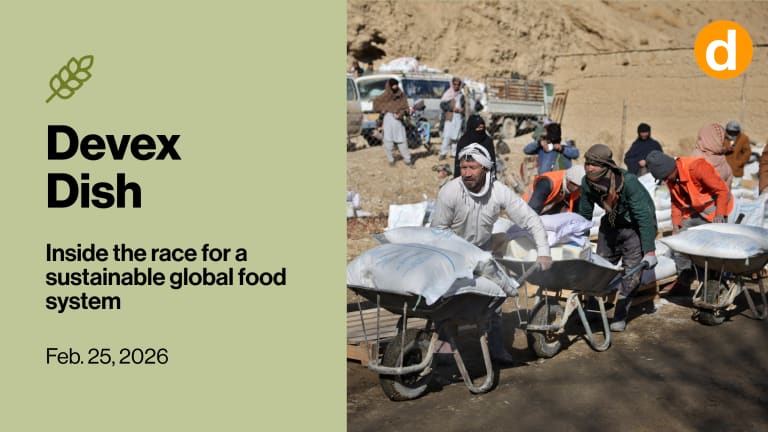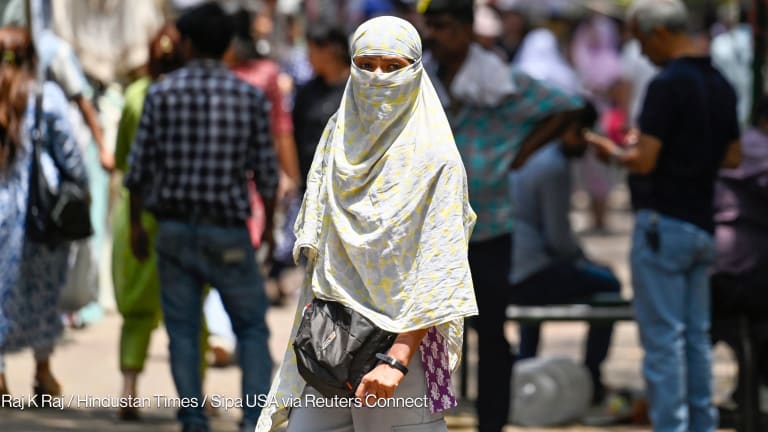
Saudi Arabia and the United Arab Emirates each contributed nothing to a United Nations pledging conference Wednesday to raise money for the humanitarian crisis in Yemen.
Both countries are parties to the seven-year conflict — with experts saying their actions have contributed to the humanitarian crisis — but they have previously been top donors to U.N. appeals for the country. In 2021, Saudi Arabia pledged $430 million, while UAE pledged $230 million.
“Yemen may have receded from the headlines, but human suffering has not relented,” U.N. Secretary-General António Guterres said during the High-Level Pledging Event on the Humanitarian Crisis in Yemen. “People have been confronting death, destruction … on a massive scale. … This is a tragedy.”
Humanitarian appeals for the Yemen crisis are consistently underfunded. The U.N. pledging event raised less than a third of the funds needed, with 36 donors pledging just under $1.3 billion. It aimed to raise $4.3 billion to help 17 million people in Yemen, where conditions are said to be dire and famine is feared. Last year’s conference raised $1.67 billion, or 43% of the amount needed.
The United States, the largest donor at Wednesday’s event, more than tripled its contribution to $584.6 million, up from $191 million in 2021, and the European Commission pledged $173 million, up from $116 million last year.
The United Kingdom, which has cut its aid budget, donated £88 million, up marginally from £87 million in 2021. But U.N. documents show that when converted to U.S. dollars, the country’s donation was smaller in 2022, at $117.8 million this year compared with $123.2 million in 2021.
Despite the scale of human suffering in Yemen, it is feared that Russia’s war in Ukraine is diverting attention and aid funding, while also causing price hikes for food and fuel. Ukraine previously supplied the World Food Programme with 50% of the grain it used worldwide, according to David Beasley, the agency’s executive director.
“Let us be under no illusions: We hope for more,” said Martin Griffiths, who co-hosted the event in his capacity as U.N. undersecretary-general for humanitarian affairs and emergency relief coordinator. “It is a disappointment we weren't able to get pledges … from some we thought we might hear from. We will be working hard to do that.”
“We need more,” Manuel Bessler, the head of Swiss Humanitarian Aid at the Swiss Agency for Development and Cooperation, said to delegates after pledging had concluded. He said the money raised did “not match the tremendous needs we have on the ground.”
“Yemen may have receded from the headlines, but human suffering has not relented.”
— António Guterres, secretary-general, U.N.“Particularly, we are very curious to hear from the donors from the Gulf where they stand and what their intention is to address this funding crisis,” he added.
Officials said they would attempt a second round of fundraising later in the year.
The reaction from civil society was bitter. “More people are in need this year in Yemen than in 2021,” said Jan Egeland, secretary-general at the Norwegian Refugee Council, in a statement. “More lives will be lost. More children will starve. More families will sleep outside. More communities will be without access to clean water. Yet somehow, we will have less money to support them. World leaders must not allow this to happen.”
Representatives of both Saudi Arabia and UAE blamed the Houthis — who are aligned with Iran and control much of the populated parts of Yemen — for the conflict’s continuation and called for the international community to take a harder line on the group.
Saudi Arabia’s Dr. Abdullah al-Rabeeah, supervisor general at the King Salman Humanitarian Aid and Relief Centre, said Houthi escalations required a “firm” position.
“We are leading donor countries for Yemen,” he argued during the event, saying Saudi Arabia has provided more than $19 billion in aid and economic development to the country.
“We will continue to provide support for Yemen through humanitarian economic programs in order to put an end to the humanitarian suffering, in coordination with U.N. partners, international partners, and local partners,” added al-Rabeeah.
UAE’s Shakhboot Nahyan al-Nahyan, minister of state in the Ministry of Foreign Affairs and International Cooperation, said there was an “abundance” of investment ready to “start [Yemen] on the road to recovery” when hostilities have ended.
“We would be the first to do so,” he said.
Devex revealed on Tuesday that the U.K. was coming under pressure to designate the Houthis as a terrorist group, which humanitarian experts fear could worsen the food insecurity in the country. UAE’s demands are believed to have begun after the Houthis attacked civilians and infrastructure in the country in January.
Search for articles
Most Read
- 1
- 2
- 3
- 4
- 5








